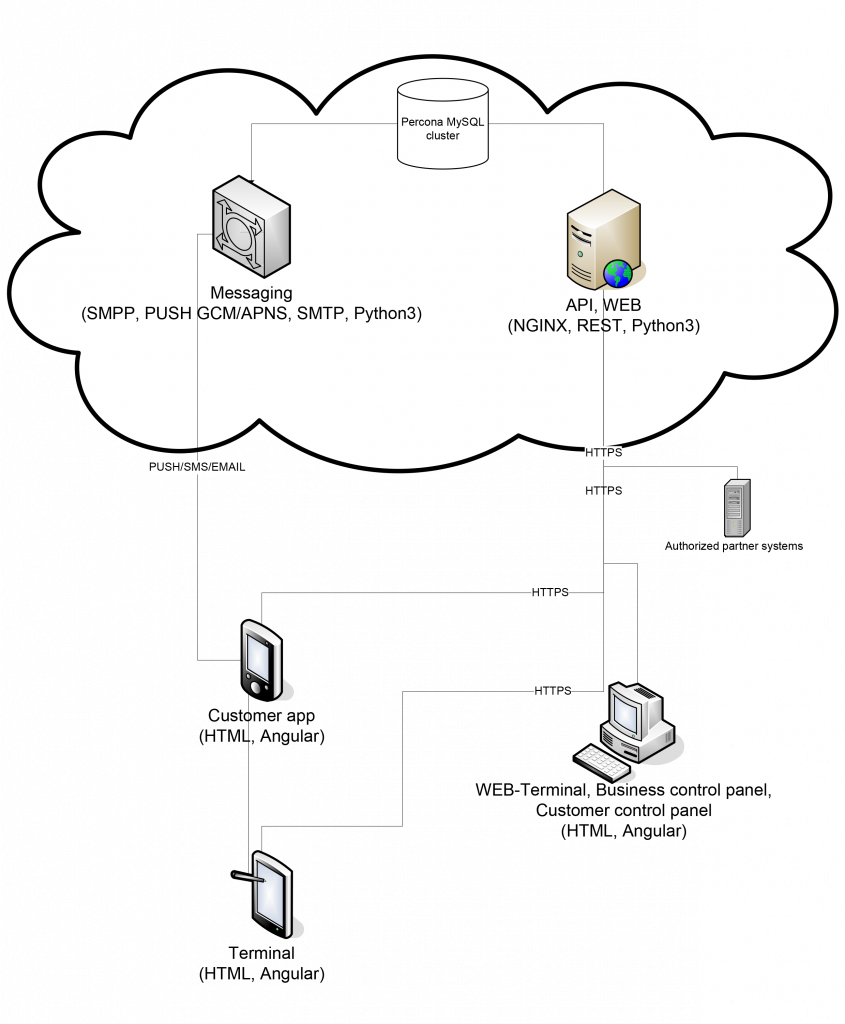What technologies are used inside the inCust platform (technology stack)
The platform is based on a set of server applications created to process as many transactions as possible simultaneously and in a minimum time. For this purpose, the Percona version of MySQL DBMS is used. Server applications are implemented using Python.
For safety and ease of development and management, all components of the platform are connected to each other only via the JSON API.
The platform includes a set of applications visible to clients (business users) or customers: the mobile application for customers, Terminal (POS/register software), a customer self-service panel Kiosk, and others. Most of the applications are created using Cordova / Ionic technology, which makes it possible for us to create versions of applications for Android and iOS, and at the same time make them available through the Web interface.
Client applications can be labeled with the business brand, thus creating a so-called white-label version. Our company creates such versions upon request and later supports and maintains them.
If you need to create an own application or embed inCust functions in another (existing) application, this can be done using the public API. For example, such integration may be necessary to link inCust with an existing cash register system. We provide an API for the implementation of functions similar to an application for customers and an API that a POS works with.
The platform can be used as a cloud service under your brand or under the inCust brand, and as an on-premise solution that is deployed on your servers. The second option is necessary if you want to store data under your control and have access to it for analytical purposes, as well as in order to comply with the requirements of the legislation on the protection of certain data operated by the platform.
Deploying a platform copy requires one medium-sized physical server or several virtual machines. In the case of a physical server, virtual machines are run on it to ensure data security. A typical configuration includes four servers (virtual machines) of different performance: database server, API server, message server, and analytic server.

The analytic server will enable you to receive data for analysis using the analysis system of your choice.
The platform uses a number of third-party services for the following functions:
- maps (Google services)
- sending Push messages to the mobile application (Google services)
- sending SMS messages (third-party provider of your choice)
- sending Viber messages (third-party provider of your choice)
You are welcome to ask us questions, and we will be happy to provide a typical server configuration and answer any other of your questions. In each case, we help build the most commercially viable solution for your business.


